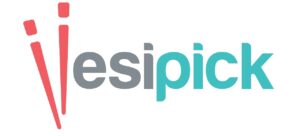A Comprehensive Nutrition Plan for Tech Professionals
Introduction
As a tech professional, your demanding work schedule often requires sustained focus, energy, and cognitive function. The right nutrition can significantly impact your productivity, well-being, and overall performance. This comprehensive plan provides a framework for fueling your body with the essential nutrients to support your demanding lifestyle.
Prioritizing Nutrient-Dense Foods
Fruits and Vegetables:
These are packed with vitamins, minerals, and antioxidants that support brain health and boost energy. Aim for at least 5 servings daily.
Whole Grains:
Opt for whole grains like brown rice, quinoa, and whole-wheat bread. They provide sustained energy and fiber for digestive health.
Lean Proteins:
Choose lean sources like chicken, fish, beans, and lentils. Protein is essential for building and repairing tissues, and it can help you feel full and satisfied.
Healthy Fats:
Include sources like avocados, nuts, and seeds. Healthy fats support brain health and hormone production.
Hydration and Hydration
Water:
Drink plenty of water throughout the day to stay hydrated and prevent fatigue. Aim for at least 8 glasses daily.
Herbal Teas:
Consider herbal teas like green tea or chamomile, which can provide antioxidants and promote relaxation.
Limiting Processed Foods and Sugary Drinks
Processed Foods:
These often contain unhealthy fats, excessive sodium, and artificial additives that can negatively impact your energy levels and overall health.
Sugary Drinks:
Opt for water, unsweetened tea, or coffee instead of sugary drinks, which can lead to energy crashes and weight gain.

Mindful Eating and Stress Management
Portion Control:
Be mindful of portion sizes to avoid overeating.
Eat Slowly:
Chew your food thoroughly to aid digestion and savor the flavors.
Listen to Your Body:
Pay attention to hunger and fullness cues.
Stress Management:
Incorporate stress-reduction techniques like exercise, meditation, or deep breathing into your routine.
Additional Considerations
Supplements:
While a balanced diet should provide most of the nutrients you need, consulting with a healthcare professional or registered dietitian can help determine if you may benefit from supplements.
Sleep Hygiene:
Ensure you’re getting enough quality sleep, as it’s crucial for cognitive function and energy levels. Establish a consistent sleep schedule and create a relaxing bedtime routine.
Meal Planning:
Planning your meals in advance can help you make healthier choices and avoid impulsive decisions.
Social Eating:
Enjoy meals with friends and family to reduce stress and promote a positive eating environment.
Avoid Skipping Meals:
Eating regular meals helps maintain stable blood sugar levels and prevents energy crashes.
A Sample Meal Plan
Breakfast:
Oatmeal with berries and nuts, Greek yogurt with fruit, or a protein smoothie.
Lunch:
Salad with grilled chicken or fish, whole-grain sandwich with lean protein and vegetables, or lentil soup.
Dinner:
Salmon (fish) with roasted vegetables, chicken stir-fry with brown rice, or a vegetarian chili.
Snacks:
Fruits, nuts, yogurt, or a handful of dark chocolate.

Optimizing Cognitive Performance
Beyond the nutritional aspects, several lifestyle factors can contribute to enhancing your cognitive function:
Regular Exercise:
Physical activity improves blood flow to the brain, promoting oxygenation and nutrient delivery. Aim for at least 30 minutes of moderate-intensity exercise most days of the week.
Mental Stimulation:
Engage in activities that challenge your mind, such as puzzles, learning a new language, or playing a musical instrument.
Stress Management:
Chronic stress can negatively impact cognitive function. Incorporate stress-reduction techniques like meditation, deep breathing, or yoga into your routine.
Limit Screen Time:
Excessive screen time can lead to eye strain and fatigue. Take breaks from screens every 20-30 minutes.
Quality Sleep:
Aim for 7-9 hours of uninterrupted sleep each night to allow your brain to rest and recharge.
Conclusion
By fueling your body with the right nutrients, you can optimize your performance and maintain a healthy lifestyle as a tech professional. Remember to consult with a healthcare professional or registered dietitian for personalized advice.



